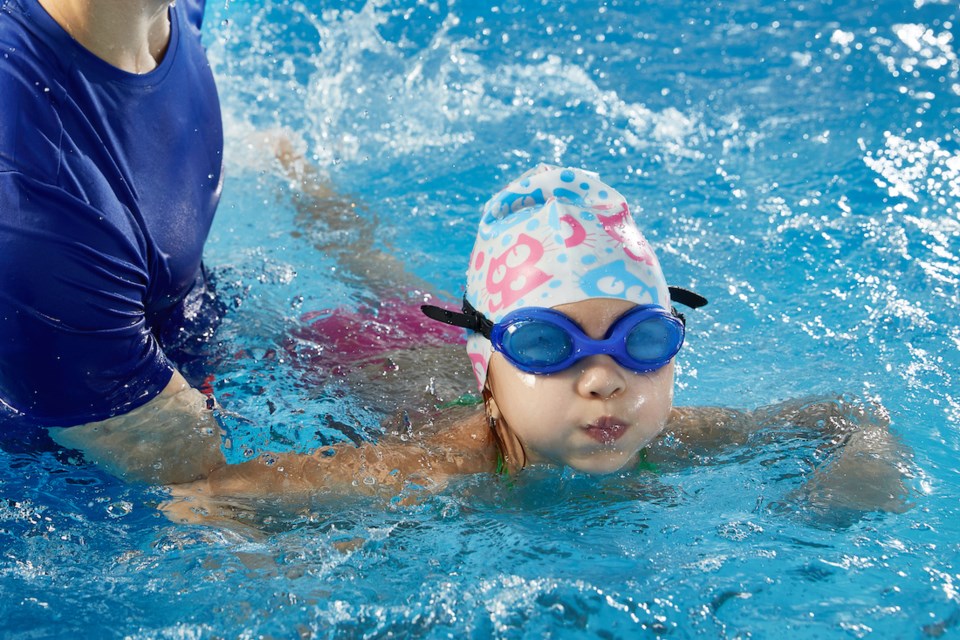Â鶹´«Ã½Ó³»parents are stressed out trying to get their kids into swim lessons at local city pools.
Swim lesson shortages are due to a combination of factors that arose during the pandemic, including public pools closing for many months to delayed graduation of swim instructors.
Additionally, the has pulled most of its swim instructors and lifeguards for other humanitarian crises such as the opioid crisis and the growing number of natural disasters.
As a result, many Â鶹´«Ã½Ó³»residents are frustrated as their kids get lessons inconsistently, signing up for one cycle but missing the next program cycle - if they can even get in.
Â鶹´«Ã½Ó³»parent Elim Kwok said her friends and family are frustrated and don't bother trying anymore.
Kwok says she still attempts to find a space for her family in local lessons, however, because Â鶹´«Ã½Ó³»is a port city with access to rivers, lakes, and the ocean.
Her husband has family in California, she adds, and, when they visited the U.S. last year, it was a quick trip to the coast where the kids play on the beach. "We [also] spent a lot of time at the hotel pool because the kids love water."
Having taken all the swim levels as a kid herself, Kwok sees learning to swim as an essential skill.
"There are so many pools around and you hear a lot about toddlers drowning in pools all over the world," Kwok says. "It's scary for parents with young children who don't know how to float at the very least."
Â鶹´«Ã½Ó³»parent Munisha Tumato said she's largely given up on city lessons since last fall and says private lessons can be too expensive.
Another problem for her is access.
"We are a one-car family," describes the mother of two. "If we’re taking our kids to different locations for different lessons at the same time, it’s going to be challenging."
It's ideal to have both kids in the same place around the same time and day, but those considerations fall to the wayside in the mad scramble to get kids into lessons - period.
Tumato and her husband sit side-by-side on their laptops and, with each one representing one child, try to register them online.
The challenge puts a lot of pressure on parents to get their children enrolled in courses for what Tumato considers a basic life skill with lessons available to all kids, especially for kids living near an ocean.
Parents today are busy, trying to survive in Â鶹´«Ã½Ó³»with its high cost of living and inflation, she says.
There are only four chances a year to sign her kids up and Tumato doesn't know which method is the best way to do so: in-person, by phone, or online.
Kimiko Hirakida, the Royal Life Saving Society of Canada representative for British Columbia and Yukon, acknowledges the three-year backlog of swim lessons.
When the Red Cross redirected its efforts across the country to other humanitarian situations, it passed the responsibility to the society whose mission is focused on drowning prevention. Hirakida notes that B.C. and Yukon had the highest conversion rate of Red Cross swim instructors to life-saving society instructors.
The organization converted 5,323 instructors within B.C., she elaborates.
On top of that, in 2023, the society trained just under 2,500 new swim instructors for B.C. and Yukon.
It's unclear whether it's enough to address the current demand.
Hirakida, a 25-year veteran in this field, notes there are now more swim instructors in B.C. today than in 2018.
There's been a collective mental shift surrounding today's generation of aquatic professionals.
Hirakida reflects that within her generation of lifeguards, the sentiment was often: "I would happily work full-time. I would teach lessons all the time."
Nowadays, the younger generation tends to prefer a balance between their personal life and work.
Hirakida says younger people no longer work the same quantity of hours the previous generations worked in the same jobs.
What this means is that aquatic programmers and cities have to be "creative" in what they offer for their local programming.
For example, swim facilities and community centres have implemented more flexibility in how lessons are structured, offering sessions maybe once a week instead of twice, in hopes of getting more lessons in for the amount of staff available.
The demand for swim lessons in Â鶹´«Ã½Ó³»is not anticipated to go away.
With the rise of heat waves and heat domes every year, people will go to local pools, beaches, and bodies of water to cool off, Hirakida points out.
Swimming is also a more affordable, accessible recreational activity than something like hockey, which requires specialized equipment for growing little bodies and upfront fees for leagues.



